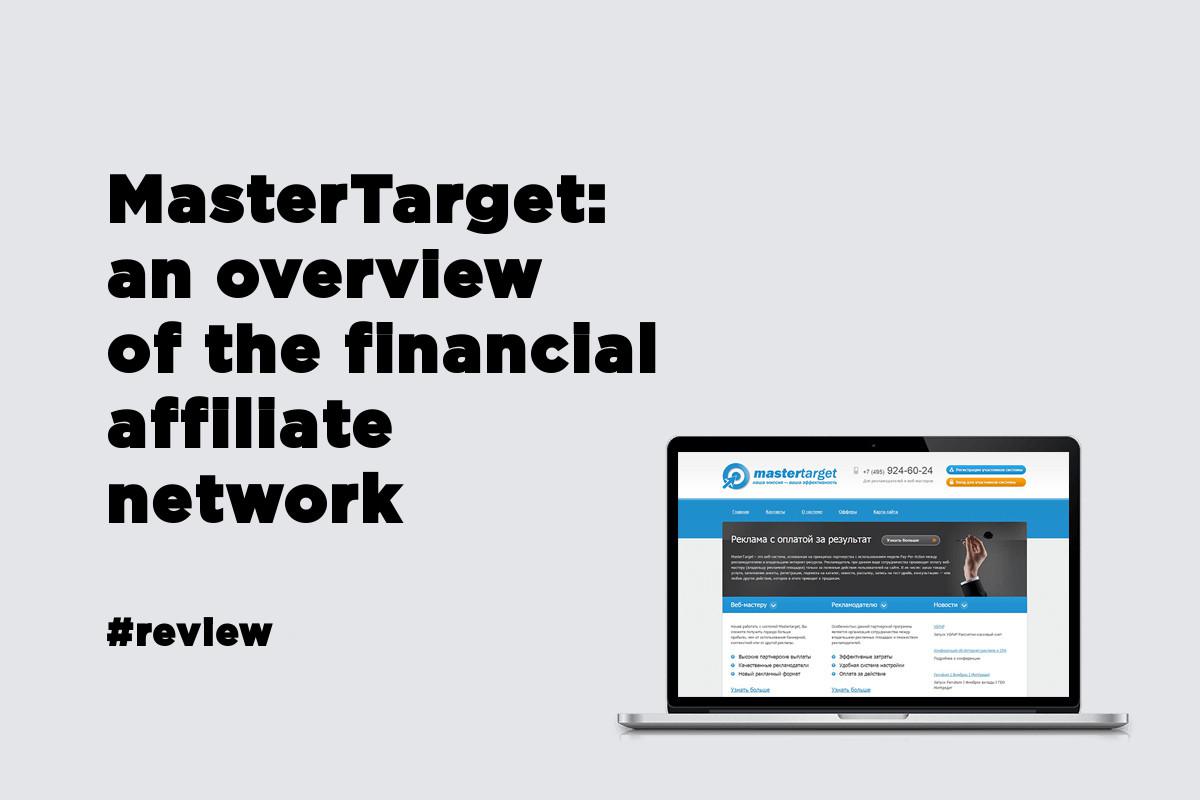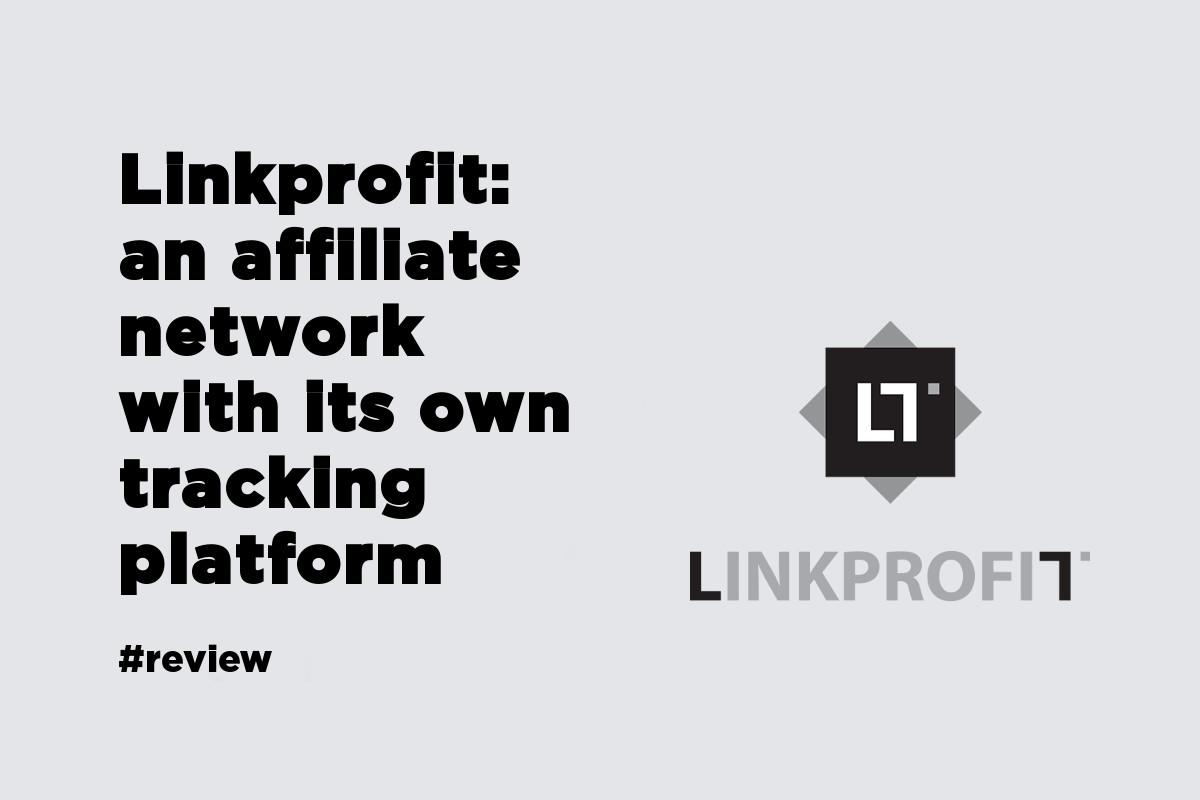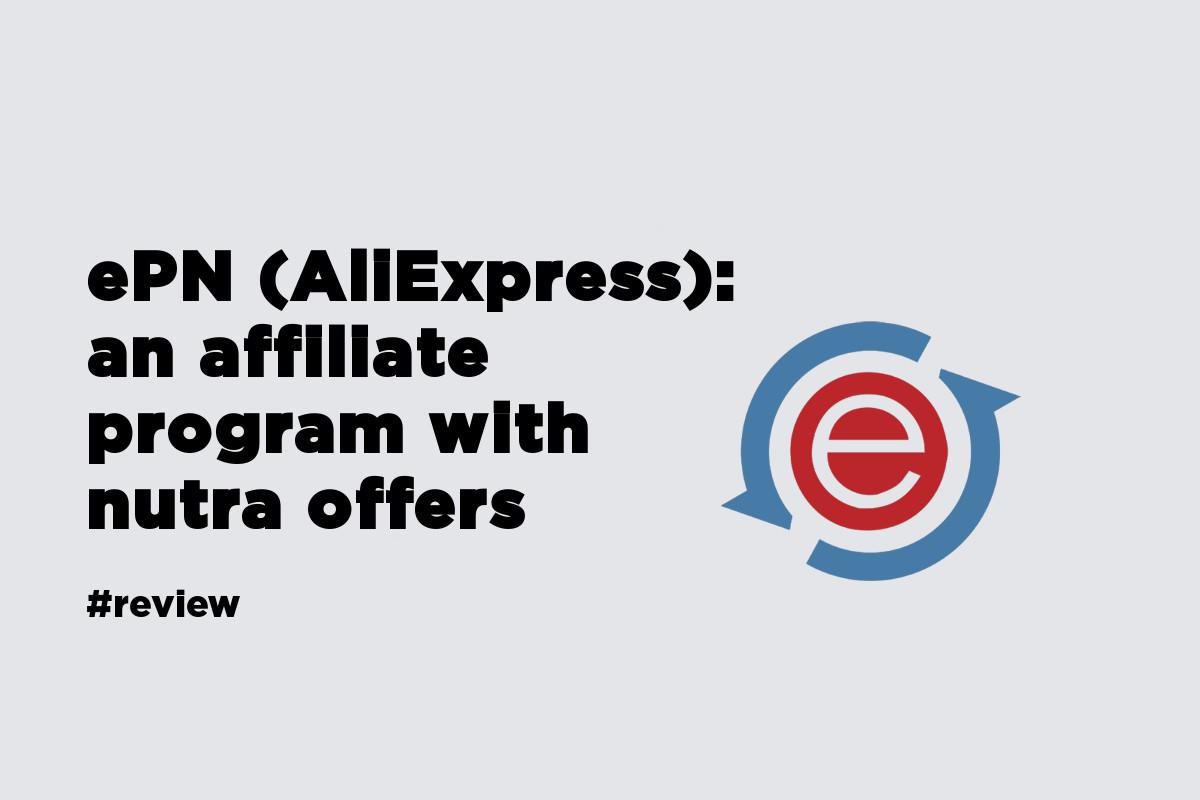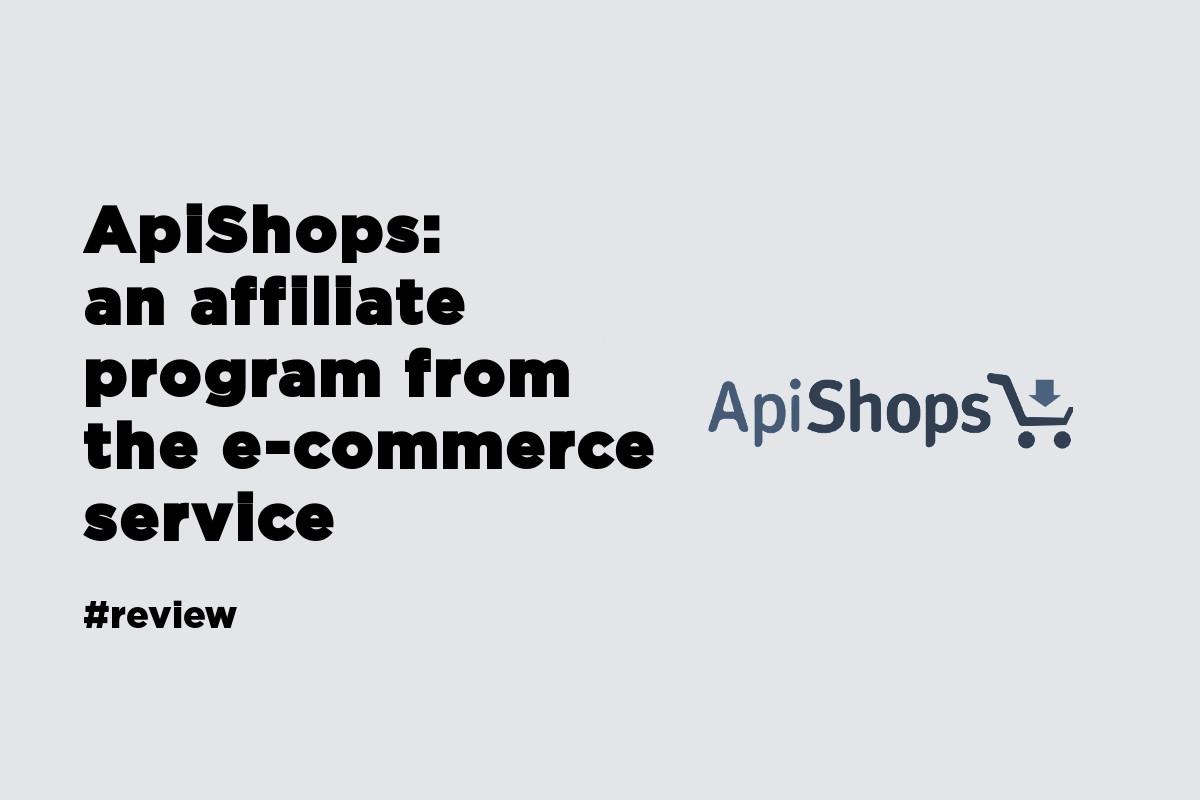e-Commerce
e-Commerce affiliate networks allow to monetize traffic from online stores. Moreover, this encompasses several verticals: e-commerce with physical goods, nutra – health and beauty products, info-products, services, and mobile apps. Affiliate networks provide affiliate with all they need to promote popular online stores and to monetize traffic.
Admitad: one of the largest affiliate networks in Russia
M1 CPA Network Review

Ad1 (now OFFERRUM): features of working with the affiliate program

MonsterLeads: an overview of the affiliate network with nutra and gaming offers

AliExpress Portals: an affiliate program from the largest online store in the world

MasterTarget: an overview of the financial affiliate network

Linkprofit: an affiliate network with its own tracking platform

ePN (AliExpress): an affiliate program with nutra offers

Himba: an overview of the affiliate network with exclusive offers
E-commerce in Affiliate Marketing: How to Make Money and What Affiliate Network to Choose
In the bustling world of affiliate marketing, there’s a reliable and enduring player: e-commerce. This vertical thrives by promoting tangible products online, providing a convenient way for people to shop. The simplicity of online shopping has become a natural choice, especially as we all look to save time and effort. Credit cards, secure online payments, and the impact of the 2020 pandemic have pushed e-commerce to the forefront, making it a preferred alternative to traditional in-store shopping.
By collaborating with the right programs and networks, brands can showcase products through posts ranging from basic product info to in-depth content, like demos, testimonials, and compelling calls to action. This article is a comprehensive guide for aspiring affiliates and seasoned media buyers who want to try their hand in e-commerce vertical.
Understanding the appeal of the e-commerce niche
E-commerce covers a wide range of products, from trendy clothing to the latest tech gadgets. Advertisers in this space include online stores and emerging brands, all aiming to establish a strong online presence. For affiliates, this means the opportunity to promote products without getting involved in storage, packaging, or shipping concerns. The focus is on matching the right products with the right audience.
E-commerce offers come in various flavors, including Pay-Per-Sale (PPS), Pay-Per-Lead (PPL), Pay-Per-Click (PPC), or Revenue Sharing (RevShare). Regardless of the specific model, the main goal is to drive successful sales.
Traffic sources for e-commerce ad campaigns
E-commerce, with its ability to offer tangible goods through the digital realm, has become a cornerstone of modern retail. As we delve into the strategies, opportunities, and challenges within this bustling domain, we’ll explore the crucial traffic sources that fuel the success of e-commerce offers. From the powerhouses of social media to the seamless allure of native advertising, we’ll uncover the channels that can drive your e-commerce affiliate campaigns to new heights. Join us on this journey as we uncover the art and science of effectively promoting products in the digital marketplace.
- Social media platforms: platforms such as Facebook, Instagram, and TikTok offer a massive user base and provide opportunities to reach receptive audiences. Given the visual nature of e-commerce products, platforms with a strong visual component like Instagram and TikTok can be especially effective for showcasing products and engaging users.
- Search engines: while not explicitly mentioned in the text, search engines remain a vital traffic source for e-commerce. People often turn to search engines like Google when actively looking for products. A well-optimized e-commerce website with search engine visibility can attract users who are specifically interested in making purchases.
- Native advertising: this form of advertising can be effective in attracting quality leads who are genuinely interested in the topic, resulting in higher Click-Through Rates (CTR). Platforms that support native advertising can be valuable for e-commerce campaigns, as they allow for a more integrated and engaging user experience.
Examples of e-commerce affiliate marketing programs
The seamless integration of e-commerce with affiliate strategies has revolutionized the way products are promoted and sold online. To illustrate the diversity and potential of this vertical, let’s take a closer look at some compelling examples of e-commerce affiliate marketing programs:
- Amazon Associates: as one of the pioneers in affiliate marketing, Amazon Associates allows affiliates to promote a wide range of products from the world’s largest online retailer. The program’s vast selection and strong brand recognition make it a popular choice for affiliate marketers.
- eBay Partner Network: eBay, a global marketplace for both new and used goods, offers the eBay Partner Network. Affiliates can promote individual listings or use tools to create compelling campaigns, benefiting from eBay’s extensive reach and diverse product categories.
- Shopify Affiliate Program: Shopify, a leading e-commerce platform, empowers entrepreneurs to create and manage their online stores. The Shopify Affiliate Program allows affiliates to earn commissions by promoting this user-friendly solution, particularly appealing to those interested in e-commerce ventures.
- Walmart Affiliate Program: Walmart, one of the world’s largest retailers, provides an affiliate program that spans a diverse range of products, from electronics and home goods to groceries. Affiliates can tap into Walmart’s massive customer base and extensive product selection.
- Etsy Affiliate Program: Etsy, a renowned platform for handmade, vintage, and unique goods, provides an affiliate program that caters to those interested in promoting artisanal products. This program resonates with audiences seeking one-of-a-kind items.
These examples represent just a fraction of the e-commerce affiliate marketing opportunities available in the digital space. Affiliates can choose programs that align with their niche, target audience, and expertise, allowing them to tap into the ever-expanding world of e-commerce and maximize their earning potential.
Choosing the right affiliate network
Selecting the appropriate affiliate network is a crucial step in a successful e-commerce campaign. Here are key considerations when choosing the right network:
- Industry focus: look for affiliate networks that cater specifically to e-commerce or have a strong presence in the e-commerce sector. Networks with a focus on retail, fashion, electronics, and other e-commerce niches are more likely to provide relevant and high-quality offers.
- Offer variety: a good affiliate network should offer a diverse range of e-commerce offers. This diversity ensures that you can find products or services that align with your target audience and expertise. Whether you’re interested in fashion, electronics, home goods, or other niches, the network should have options.
- Commission structure: understand the commission structure offered by the network. Additionally, consider the payment frequency and methods. Some networks pay weekly, bi-weekly, or monthly, and offer various payment options (e.g., direct deposit, PayPal).
- Tracking and analytics: look for networks that provide detailed analytics, conversion tracking, and the ability to optimize based on data.
- Network reputation: a reputable network should have a solid history of successful partnerships, a large pool of advertisers, and high-quality affiliates.
By carefully evaluating these factors, you can identify the right affiliate network for your e-commerce campaigns. Choosing a network that aligns with your goals, offers, and provides the necessary support can significantly enhance your chances of success in the dynamic world of e-commerce affiliate marketing.
Strategies for success in e-commerce affiliate marketing
E-commerce has revolutionized the way we shop, and affiliate marketing within this booming industry has become a powerful avenue for digital entrepreneurs to earn substantial income. However, success in e-commerce affiliate marketing doesn’t happen by chance. It requires strategic planning, continuous learning, and a dynamic approach. Here are essential strategies to thrive in the world of e-commerce affiliate marketing:
- Understand your audience: tailor your promotions to resonate with your audience’s interests and buying behavior. Conduct thorough market research to identify trends, demographics, and consumer behavior within your niche.
- Select high-quality offers: look for programs that offer competitive commission rates, reliable tracking, and a proven track record of timely payments. High-quality offers build trust with your audience and boost your credibility.
- Optimize for mobile: ensure that your website or landing pages are responsive and provide a seamless experience on various devices.
- Leverage SEO and content marketing: create high-quality, SEO-friendly content that addresses your audience’s queries and showcases the benefits of the products you’re promoting. Optimize your content for relevant keywords, and focus on building organic search traffic.
- Embrace social media: utilize platforms like Facebook, Instagram, Pinterest, and Twitter to connect with your audience, share valuable content, and promote affiliate products. Leverage visual content, engage with your followers, and use targeted advertising to reach potential customers.
- Test and optimize: experiment with different promotional strategies, ad formats, and messaging. Analyze the performance of your campaigns, track key metrics such as conversion rates, click-through rates (CTR), and ROI. Use the data to refine your approach and focus on what works best.
- Provide value and transparency: be honest about the products you’re promoting, highlighting their benefits while acknowledging any potential limitations. Share personal experiences or reviews, and incorporate user-generated content to enhance authenticity.
Case studies of dating product monetization in affiliate marketing
Sending Traffic to Nutra Offers via PWA Apps with 110% ROI
The provided case study showcases a successful approach to promoting Nutra offers through Progressive Web App (PWA) apps. The specific geographical focus on Spain, along with a remarkable Return on Investment (ROI) of 110%, highlights the effectiveness of this strategy. Engaging creatives, including before/after videos and relatable product demonstrations, played a pivotal role in the success.
Case study: Maximizing exposure – back to school
This case study highlights the success of a Back to School campaign within the retail sector. The strategy focused on limited tenancy budgets and selective partnerships with top publishers, resulting in substantial ROI, ROAS, and the establishment of new, valuable partnerships. This success led to additional budget allocation for peak holiday periods.
Etsy UK, US and CA: Growing product awareness through key seasonal opportunities
Etsy, operating in the UK, US, and Canada, effectively leveraged key seasonal opportunities to enhance product awareness. They utilized competitions and incentives to highlight Halloween-themed products, drive traffic, and showcase unique items on their platform. Their strategy involved offering prizes, well-timed email communications, and engaging various publishers. The results indicated significant growth in sales volume across the three territories, with the UK experiencing a 35% increase, Canada with a 24% increase, and a stable month-on-month sales volume in the US.
In-depth study of dating affiliate marketing: resources and approaches for success
To delve into the depths of effective monetization in the dating affiliate realm, one must navigate a sea of knowledge and employ astute strategies. This guide compiles a comprehensive list of resources, insights, and approaches that can equip you to navigate the nuances of dating offers and maximize your affiliate earnings.
Articles and guides
- A Complete Guide to Affiliate Marketing: Getting Started in 2023
- The Ultimate eCommerce Guide to Affiliate Marketing
- Everything You Need To Know About Affiliate Marketing
- Affiliate Marketing in Ecommerce: Benefits and Good Practices
- The Power of Affiliate Marketing in eCommerce
Forums and communities
- AffiliateFix — a network of e-commerce affiliate marketers, fostering discussions on effective strategies for promoting online products.
- Warrior Forum — a platform dedicated to sharing proven tactics in e-commerce affiliate marketing.
- Mobidea Academy — a blog offering insightful articles on e-commerce affiliate marketing, encompassing a wide range of product offers.
- Affiliate Marketing Podcast — a podcast exploring diverse strategies in e-commerce affiliate marketing, from product promotion to audience engagement.
- Stack That Money (STM) Forum — a premium e-commerce affiliate marketing community, providing in-depth discussions, case studies, and valuable insights spanning across different product verticals and traffic sources.
Conclusion
In the ever-evolving landscape of affiliate marketing, e-commerce stands as a robust and dependable vertical, offering tangible products that resonate with online shoppers worldwide. This article has unraveled the essential elements of success within e-commerce affiliate marketing, from understanding the appeal of the niche to choosing the right affiliate network.
We’ve delved into the strategic use of traffic sources, examined real-world case studies, and provided actionable strategies to thrive in this dynamic field. As you embark on your journey in e-commerce affiliate marketing, remember to align with quality offers, cater to your audience’s needs, and stay adaptable in a rapidly changing digital marketplace.
By applying these principles and drawing inspiration from the insights shared, you’ll be well-equipped to navigate the e-commerce landscape, capitalize on key seasonal opportunities, and make a lasting impact in the world of affiliate marketing.





